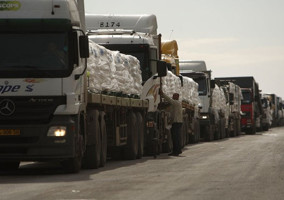Some charities are too reluctant to publish detailed information about allegations of sexual exploitation and abuse, and an independent ombudsman is needed, a group of MPs has said.
The International Development Committee published a follow-up report to its inquiry into sexual exploitation and abuse yesterday, warning that the sector has been “too slow” to address problems and calling on Bond, a membership body for aid charities, to do more to improve transparency across the sector.
However Bond said that progress has been made and challenged the committee’s focus on whistleblowing.
The Department for International Development (DfID) has also published three reports looking at progress that has been made since a safeguarding summit a year ago.
Committee: ‘The sector has been too slow’
The committee recommended that DfID and Bond do more to offer practical support to help get safeguarding right.
It also called for whistleblowers to be empowered and protected, and said that so far the sector has not given this area enough attention.
“We have not yet seen sufficient attention being given to monitoring and improving the effectiveness of whistleblowing policies, and we are concerned that the importance of protecting whistleblowers has so far been downplayed,” the report says.
The report also says: “Voluntary self-regulation of safeguarding standards allows failures on sexual exploitation and abuse to slip through the cracks.”
It repeats its calls for an ombudsman for the sector.
It also criticises progress on transparency, describing it as “limited” and says some were more “seemingly more willing than others to publish information about the number of allegations they have received and the outcome”.
Other recommendations included pressing the United Nations for progress on implementing best practices and improving coordination between different actors in the space.
Stephen Twigg, chair of the committee, said: “The success of reforms can only be judged by how they support victims and survivors in humanitarian situations across the globe. It is clear that in this respect much more work needs to be done. There should be sufficient resourcing in place to provide access to safeguarding staff on the ground, and improvement in how whistle-blowers are supported and protected.
“The era of self-regulation must also come to an end. No matter how confident aid organisations can be in their safeguarding performance, there can still be failures, victims could still fall through the gaps. That is why it is vital that an independent aid ombudsman is established, not only to provide an alternative avenue to justice for victims and survivors, but to monitor the safeguarding performance of the aid sector as a whole.”
Bond: ‘Charities’ efforts have been overlooked’
Bond said that it felt the committee had overlooked progress that had been made, and highlighted that it had written the committee in May to explain why whistleblowing had to be considered as part of the overall reporting framework.
Stephanie Draper, chief executive of Bond, said: “We value the IDC’s commitment to working with all sectors and DfID to improve safeguarding practices, however, it is a shame that months of hard work from the NGO sector to up its game across a wide range of aspects of safeguarding seems to have been overlooked in the committee’s report.
“The work that Bond has been doing with our members has focused first and foremost on making sure NGOs know what to do when handling complaints, reporting safeguarding incidents, recruitment, transparency, as well as supporting improved governance, leadership, and culture."
“As Bond stated in a letter to the IDC in May: ‘Whistleblowing mechanisms exist for instances when established reporting mechanisms fail and work as a last resort if reporting by the survivor or victim has failed. They are not a substitute for effective reporting mechanisms embedded in organisational cultures which have safeguarding at their core. People first and foremost need to feel safe enough to report abuse.’”
She added that an audit of whilstleblowing policies had not yet taken place because “we had to prioritise helping NGOs to get stronger and comprehensive systems established for report-handling now, rather than focussing on an audit of what has been in place for whistleblowing in the past.”
She also said she expected to see more transparency in charities’ 2018-19 annual reports.
Draper emphasised that as a membership body, Bond is unable to compel charities to take action in the same way as the Charity Commission.
“As a voluntary membership body and not a regulatory body such as the Charity Commission, we simply do not have the authority to make this compulsory or force NGOs to share the numbers of allegations received and the outcome with us.
“We welcome the committee’s focus on safeguarding and are committed to working with both parliament and the Department for International Development in tackling sexual abuse and exploitation in the aid and development sector head-on,” she said.
DfID reports: 10 people prevented from working in the sector under scheme
The Department for International Development published three progress reports explaining what UK charities, funders, international bodies and DfID, have made, including that 10 people have been prevented from getting jobs in the sector under a disclosure scheme.
Alok Sharma, secretary of state for international development, said in a written ministerial statement: “Work is ongoing to put victims and survivors first and drive real culture change across the aid sector. This includes:
“DfID’s £10m project with INTERPOL to help stop perpetrators of SEAH moving around the aid sector by strengthening criminal record checks and information sharing between countries. Regional hubs are being set up and priority countries have been identified.
“The Misconduct Disclosure Scheme, which means employers can share data on conduct and disciplinary records related to sexual misconduct with greater confidence. It is still early days, but the over 1,500 requests for information since January have prevented the hiring of at least 10 individuals.”
He added that: “We must continue to do all we reasonably can to make zero tolerance a reality, by which we mean responding appropriately to every single report or case.
“We must prevent SEAH from happening, listen to those affected, respond appropriately when allegations are made, and learn from every single case.
“This is just the beginning of a long-term process.”
|
Related articles












